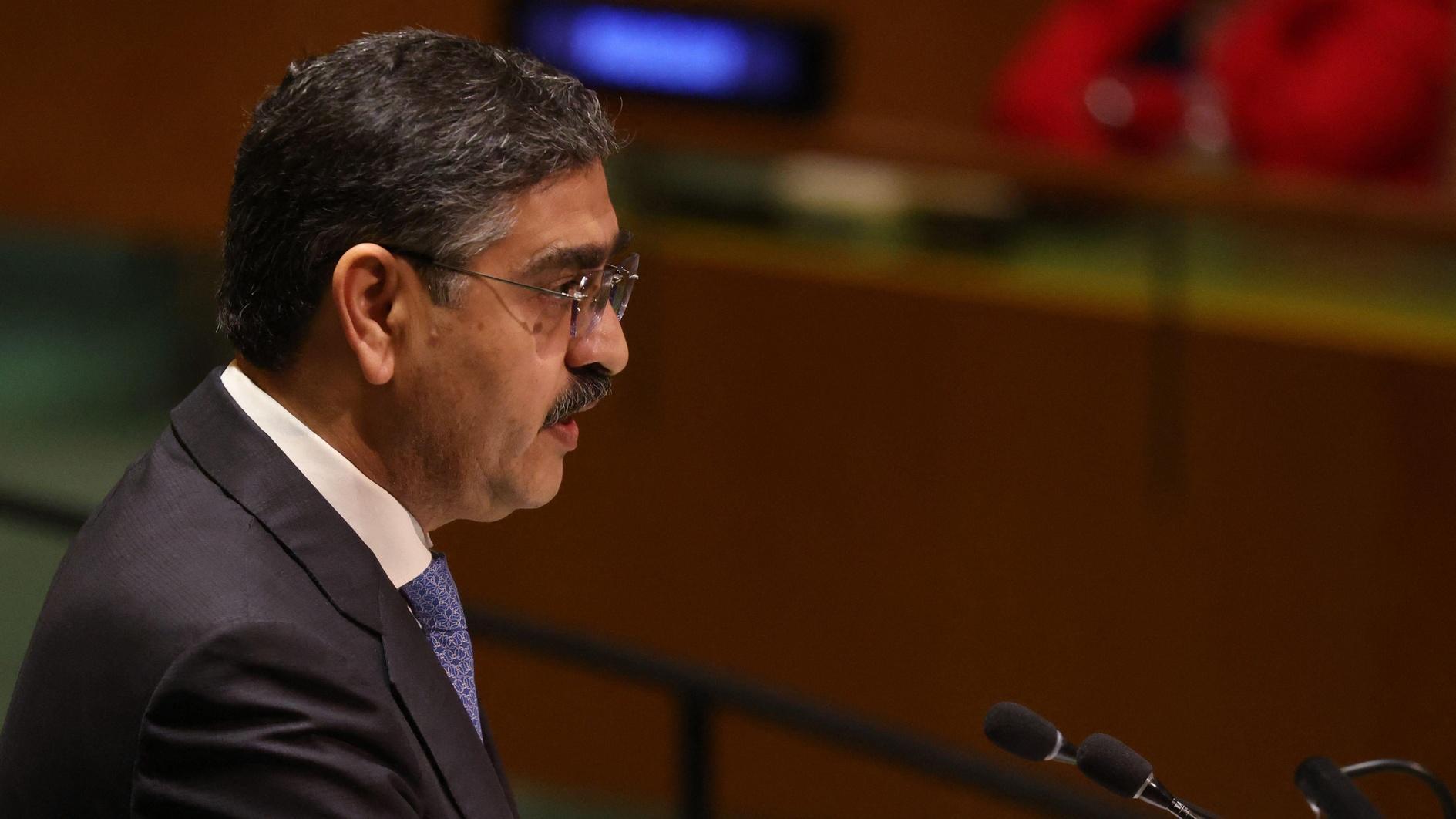Pakistan holds emergency security meeting after trading strikes with Iran
ISLAMABAD

Pakistan's prime minister held an emergency security meeting on Friday with military and intelligence chiefs after trading deadly air strikes with Iran on militant targets this week.
The rare military actions in the porous border region of Baluchistan — shared between the two countries — have further stoked regional tensions already enflamed by the Israel-Hamas war.
Iran carried out a missile and drone attack on what it called "terrorist" targets in Pakistan on Tuesday night, with Pakistan in turn striking militant targets inside Iran on Thursday.
Pakistan has recalled its ambassador from Tehran and said Iran's envoy — on a visit home — is blocked from returning to Islamabad.
The United Nations and the United States have appealed for restraint, while China has offered to mediate.
"The prime minister has summoned a meeting of the National Security Committee set to take place today," a spokesperson in his office told AFP.
An Islamabad security official said the Chief of Army Staff and head of the intelligence services would attend the meeting, which started early evening.
As the meeting began, Islamabad said foreign minister Jalil Abbas Jilani had spoken to his Iranian counterpart Hossein Amir-Abdollahian by phone.
"Jilani expressed Pakistan's readiness to work with Iran on all issues based on [a] spirit of mutual trust and cooperation," said a foreign ministry statement.
"He underscored the need for closer cooperation on security issues."
The muted rhetoric matched analysts' predictions that both sides would seek to de-escalate the confrontation.
"The upshot of the new situation is that the two countries are seemingly and symbolically even," said Antoine Levesques, of the International Institute for Strategic Studies.
"The risks of further escalation are slight and maybe diminishing with time".
Border closure fears
Pakistan's leader Anwaar-ul-Haq Kakar cut short his visit to the World Economic Forum in Davos, Switzerland following the strikes.
His caretaker government is leading Pakistan into general elections in three weeks which have been marred by allegations of pre-poll rigging.
Tehran and Islamabad have both said they hit their own domestic militants sheltering on foreign territory.
A collective death toll of 11 — mostly women and children — was reported from both sides of the border that bisects an arid region where militant movements have simmered for decades.
Villagers feared that deteriorating relations between the two sides could lead to border closures and cut off residents from Iranian trade, which the area relies on for employment and food imports.
"If Iranians close the border, the people will starve and it will cause more militancy because youth will join the separatist organisations," said 55-year-old Haji Mohammad Islam.
Baluch separatists have been waging a low-level insurgency against Pakistan authorities from the largely ungoverned, impoverished region fighting for a better share of mineral resources.
Rights groups say the military's crackdown on the insurgency has included widespread enforced disappearances and extrajudicial killings.
Militancy has also risen sharply along Pakistan's border with Afghanistan further north, after the Taliban's return to power there in 2021.
















